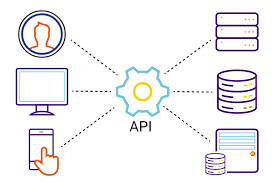API security penetration testing?
Please Share this Post
What is API security penetration testing?
API (Application Programming Interface) security penetration testing is a specialized form of security testing that focuses on identifying and mitigating vulnerabilities and weaknesses in APIs. APIs are interfaces that enable different software systems to communicate and interact with each other, allowing data and functionality to be shared across applications, services, and platforms. As APIs have become increasingly prevalent in modern software development, ensuring the security of these interfaces is paramount to protect against unauthorized access, data breaches, and other security threats.
API security penetration testing involves systematically assessing the security posture of an API by simulating real-world attack scenarios and attempting to exploit potential vulnerabilities. The primary objectives of API security penetration testing are to uncover weaknesses in the API implementation, configuration, and access controls, and to provide recommendations for remediation and improvement. This testing process typically involves several key steps, including reconnaissance, vulnerability identification, exploitation, and reporting.
The first step in API security penetration testing is reconnaissance, where testers gather information about the target API, including its endpoints, functionality, authentication mechanisms, and data formats. This may involve reviewing API documentation, analyzing API requests and responses, and interacting with the API to understand its behavior. Testers also assess how the API is integrated with other systems and identify potential attack vectors and entry points.
Once the reconnaissance phase is complete, testers proceed to identify potential vulnerabilities and weaknesses in the API implementation. This involves conducting various security tests, such as input validation testing, authentication testing, authorization testing, session management testing, and data validation testing. Testers may also look for common security issues, such as injection vulnerabilities, broken authentication, insecure direct object references, and insufficient access controls.
During the exploitation phase, testers attempt to exploit identified vulnerabilities to gain unauthorized access to sensitive data or perform malicious actions. This may involve crafting and sending malicious API requests, manipulating input parameters, bypassing authentication mechanisms, or escalating privileges to gain access to restricted resources. Testers also assess the impact of successful exploitation on the confidentiality, integrity, and availability of the API and associated systems.
Throughout the testing process, testers carefully document their findings, including details of identified vulnerabilities, attack techniques used, and potential risk implications. This information is then compiled into a comprehensive report that outlines the results of the penetration testing, including an executive summary, detailed vulnerability analysis, risk ratings, and recommendations for remediation. The report provides stakeholders with actionable insights into the security posture of the API and guidance on how to address identified vulnerabilities and improve security controls.
API security penetration testing is essential for organizations that develop, deploy, or rely on APIs to ensure the confidentiality, integrity, and availability of their data and services. By proactively identifying and addressing security weaknesses in APIs, organizations can mitigate the risk of data breaches, unauthorized access, and other security incidents. Additionally, API security penetration testing helps organizations comply with regulatory requirements and industry standards, such as the General Data Protection Regulation (GDPR), Payment Card Industry Data Security Standard (PCI DSS), and Open Web Application Security Project (OWASP) API Security Top 10.
In conclusion, API security penetration testing is a critical component of a comprehensive cybersecurity program, helping organizations identify and mitigate vulnerabilities in their APIs to protect against security threats and safeguard sensitive data. By conducting regular API security penetration testing and implementing recommended remediation measures, organizations can enhance the security posture of their APIs and mitigate the risk of security breaches and data loss.

Leave a Reply